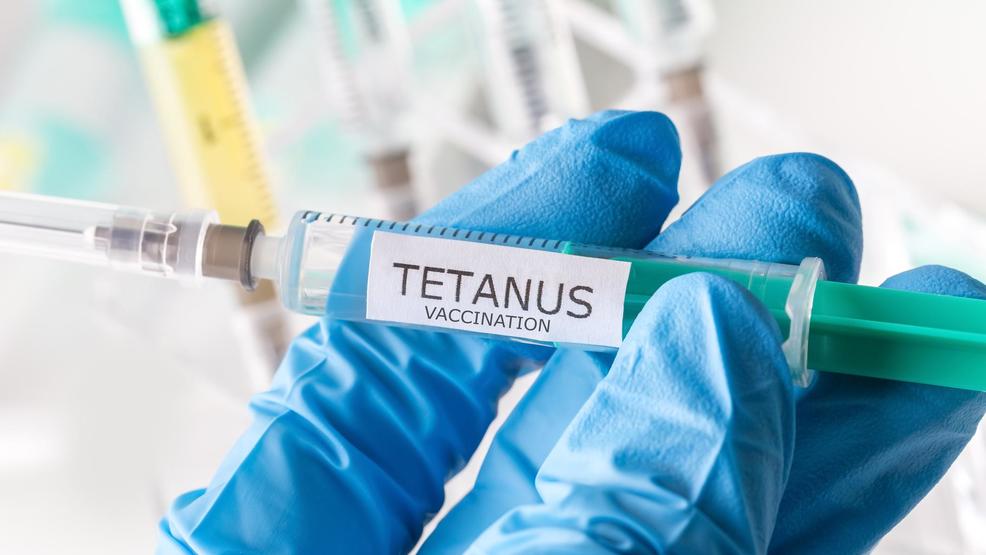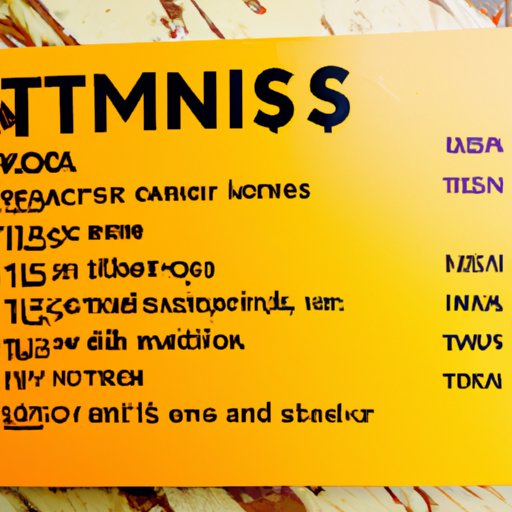**So, you’re probably wondering, "How much is a tetanus shot?" Well, let’s dive right into it because this little vaccination could save your life. Tetanus shots are more than just a routine medical procedure—they’re your body’s shield against a serious bacterial infection that can wreak havoc on your muscles and nervous system. Whether you’ve stepped on a rusty nail, suffered a deep cut, or are simply overdue for your booster, understanding the cost and importance of this shot is crucial. Let’s break it down step by step.**
Tetanus is no joke, folks. It’s caused by Clostridium tetani, a bacterium that thrives in dirty wounds, especially those involving rust or soil. Without proper protection, these bacteria can release toxins that mess with your muscles, leading to painful spasms and even difficulty breathing. That’s why staying up-to-date with your tetanus shots is key to avoiding all that trouble.
Now, if you’re here, chances are you’re curious about the cost. Don’t worry—we’ve got you covered. In this guide, we’ll explore everything from the average price of a tetanus shot to insurance coverage, potential discounts, and why skipping this vaccination isn’t an option. So grab a cup of coffee, and let’s get started!
Read also:Unveiling The Truth King Von Autopsy Results Revealed What Happened
Why Tetanus Shots Are Essential
Understanding the Risks of Tetanus
Let’s talk risks, shall we? Tetanus isn’t just some random infection—it’s a serious condition that affects your muscles and nervous system. When Clostridium tetani bacteria invade your body through wounds, they produce toxins that attack your nerves, causing stiffness, spasms, and even lockjaw. In severe cases, it can lead to respiratory problems and even death. Scary stuff, right?
Here’s the deal: tetanus doesn’t spread from person to person, but it’s still super dangerous. If you’ve ever stepped on a rusty nail, gotten a deep cut, or had any kind of injury that exposes you to dirt or debris, you’re at risk. That’s why tetanus shots are a must-have in your healthcare arsenal.
How Tetanus Shots Work
Tetanus shots contain inactivated toxins that help your body build immunity against the bacteria. Think of it as training your immune system to recognize and fight off the real deal if you ever come into contact with it. Most people receive their first dose as part of the DTaP vaccine during childhood, followed by Td or Tdap boosters every ten years as adults.
But here’s the kicker: booster shots are crucial. Your immunity doesn’t last forever, so skipping those follow-ups can leave you vulnerable. That’s why staying on top of your vaccination schedule is so important.
How Much is a Tetanus Shot? Breaking Down the Costs
Average Price Without Insurance
Alright, let’s cut to the chase. If you’re uninsured or paying out-of-pocket, the cost of a tetanus shot can vary depending on where you go. On average, you’re looking at anywhere from $40 to $100 for a single dose. Some clinics or pharmacies might charge a bit more, especially if they tack on administration fees. But hey, that’s still a small price to pay compared to the potential costs of treating tetanus.
Insurance Coverage and Out-of-Pocket Expenses
Now, if you have insurance, the good news is that most plans cover tetanus shots as part of preventive care. Under the Affordable Care Act (ACA), many vaccines, including tetanus, are offered at no cost to the patient when received from an in-network provider. However, there are exceptions, so it’s always wise to double-check with your insurance provider.
Read also:Unpacking The Power Of Ups W2s Your Ultimate Guide
Even if your insurance doesn’t fully cover the shot, you might still pay a small copay or coinsurance. Some plans require you to meet your deductible first, so be sure to clarify all the details before heading to the clinic.
Potential Discounts and Financial Assistance
Don’t let the cost deter you. There are plenty of ways to save on tetanus shots. Many pharmacies and clinics offer discounts or sliding-scale fees based on income. Additionally, programs like Vaccines for Children (VFC) provide free vaccinations to eligible kids, while some states offer similar assistance for adults.
Here’s a quick list of potential savings options:
- Check local health departments for free or low-cost clinics.
- Look into pharmacy discount programs like GoodRx or Blink Health.
- Ask your doctor about vaccine manufacturers’ patient assistance programs.
Where to Get a Tetanus Shot
Doctor’s Offices and Clinics
Your primary care physician or a local clinic is usually the go-to spot for tetanus shots. These places often have a more personal touch, and if you’re already insured, they’ll handle all the paperwork for you. Just make sure to schedule an appointment in advance, as some offices may require you to wait for the vaccine to be in stock.
Pharmacies and Retail Clinics
Pharmacies like CVS, Walgreens, and Rite Aid are super convenient for quick and easy vaccinations. Most of them accept insurance, and you can usually walk in without an appointment. Plus, they’re often cheaper than doctor’s offices, making them a great option for budget-conscious individuals.
Community Health Centers
If you’re uninsured or underinsured, community health centers can be a lifesaver. Many of these centers offer tetanus shots at reduced rates or even for free, depending on your income level. They’re also a great resource for other preventive care services, so it’s worth checking them out.
When Do You Need a Tetanus Shot?
Childhood Vaccinations
Most kids receive their first tetanus shot as part of the DTaP vaccine series, which also protects against diphtheria and pertussis. This series is typically given in five doses between the ages of 2 months and 6 years. After that, a Tdap booster is recommended around age 11 or 12 to ensure continued protection.
Adult Booster Schedule
As an adult, you’ll need a Td or Tdap booster every ten years to maintain your immunity. But here’s the thing: if you suffer a particularly dirty or deep wound and it’s been more than five years since your last shot, your doctor might recommend getting one sooner. Better safe than sorry, right?
Special Cases and High-Risk Scenarios
Some people may need tetanus shots more frequently due to their lifestyle or occupation. For example, if you work in construction, farming, or any field where you’re exposed to dirt, rust, or sharp objects, staying up-to-date with your boosters is a no-brainer. Pregnant women should also receive a Tdap shot during each pregnancy to protect both themselves and their babies.
What to Expect During the Vaccination
Before the Shot
Before you roll up your sleeve, your healthcare provider will likely ask about your medical history and any allergies you might have. This is important because certain conditions or medications could affect how your body reacts to the vaccine. If you’re feeling under the weather, it might be best to reschedule until you’re fully recovered.
During the Shot
The actual vaccination process is quick and painless. Most people experience only a mild pinch, and the shot is usually administered in the upper arm. You might feel a little soreness afterward, but that’s completely normal and should go away within a day or two.
After the Shot
After getting your tetanus shot, keep an eye out for any side effects. Common ones include redness, swelling, or tenderness at the injection site, as well as mild fatigue or headache. If you experience anything more severe, like difficulty breathing or a high fever, seek medical attention immediately.
Common Misconceptions About Tetanus Shots
Myth: Tetanus Shots Are Only for Dirty Wounds
Not true! While tetanus bacteria thrive in dirty environments, they can also enter your body through clean wounds, burns, or even animal bites. That’s why regular boosters are so important, regardless of how careful you are.
Myth: Tetanus Shots Are Painful
Most people barely notice the shot, and any discomfort afterward is usually mild and short-lived. The benefits far outweigh the minor inconvenience, so don’t let fear of needles keep you from staying protected.
Myth: You Only Need One Tetanus Shot in Your Life
Sorry, but that’s not how immunity works. Your body’s protection against tetanus decreases over time, which is why booster shots are necessary every ten years. Skipping them could leave you vulnerable to this potentially life-threatening infection.
How to Protect Yourself Beyond Tetanus Shots
Practice Good Wound Care
Even with a tetanus shot, proper wound care is essential. Clean all cuts and scrapes thoroughly with soap and water, and apply an antiseptic if necessary. Keeping wounds covered and protected can help prevent infections from setting in.
Avoid Risky Situations
Wear protective gear when working with tools, gardening, or engaging in activities that increase your risk of injury. A little precaution can go a long way in avoiding accidents that might require a tetanus shot.
Stay Informed About Vaccinations
Knowledge is power, folks. Stay up-to-date with all your vaccinations, not just tetanus. The more informed you are, the better equipped you’ll be to protect yourself and your loved ones from preventable diseases.
Conclusion: Prioritize Your Health
So, there you have it—a comprehensive guide to tetanus shots and their costs. Remember, the price of a tetanus shot is a small investment compared to the peace of mind it brings. Whether you’re insured, uninsured, or looking for ways to save, there’s no excuse not to stay protected.
Take action today! Visit your local clinic, pharmacy, or health department to schedule your shot. And while you’re at it, don’t forget to encourage your friends and family to do the same. Together, we can make tetanus a thing of the past.
Table of Contents
- Why Tetanus Shots Are Essential
- Understanding the Risks of Tetanus
- How Tetanus Shots Work
- How Much is a Tetanus Shot? Breaking Down the Costs
- Average Price Without Insurance
- Insurance Coverage and Out-of-Pocket Expenses
- Potential Discounts and Financial Assistance
- Where to Get a Tetanus Shot
- Doctor’s Offices and Clinics
- Pharmacies and Retail Clinics
- Community Health Centers
- When Do You Need a Tetanus Shot?
- Childhood Vaccinations
- Adult Booster Schedule
- Special Cases and High-Risk Scenarios
- What to Expect During the Vaccination
- Before the Shot
- During the Shot
- After the Shot
- Common Misconceptions About Tetanus Shots
- Myth: Tetanus Shots Are Only for Dirty Wounds
- Myth: Tetanus Shots Are Painful
- Myth: You Only Need One Tetanus Shot in Your Life
- How to Protect Yourself Beyond Tetanus Shots
- Practice Good Wound Care
- Avoid Risky Situations
- Stay Informed About Vaccinations
- Conclusion: Prioritize Your Health


